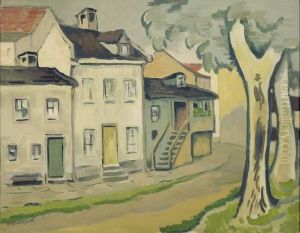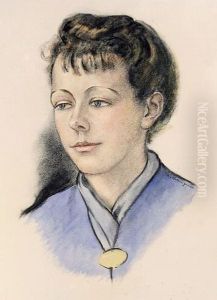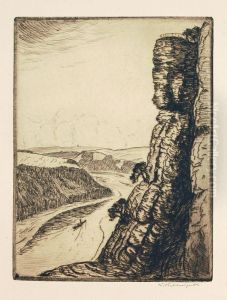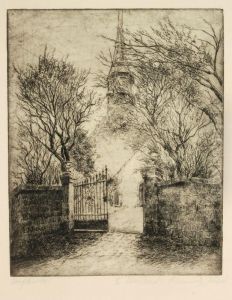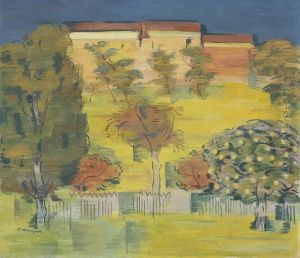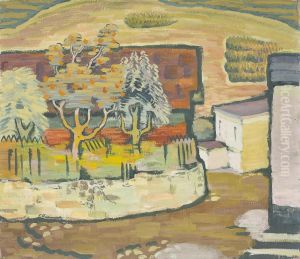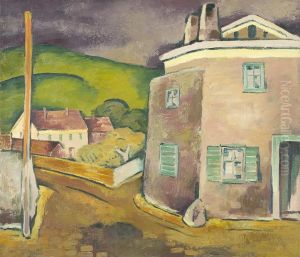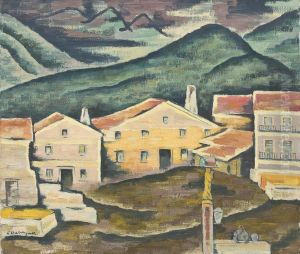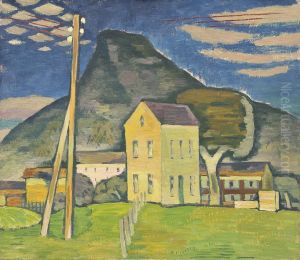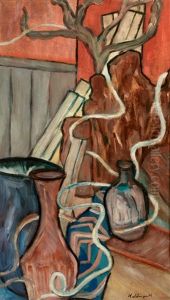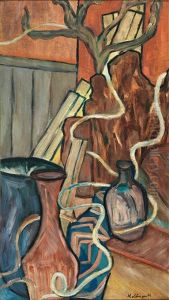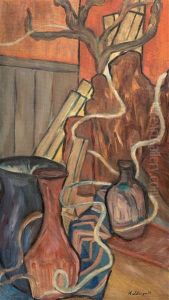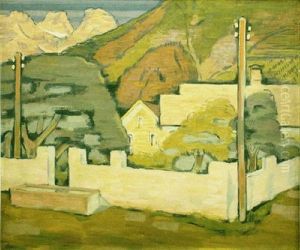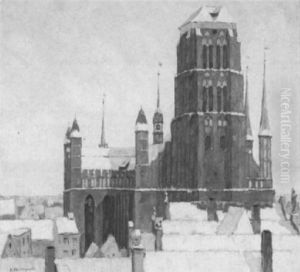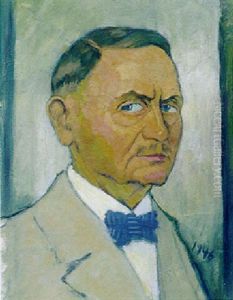Berthold Hellingrath Paintings
Berthold Hellingrath was a notable German scholar, primarily known for his seminal work on the poet Friedrich Hölderlin. Hellingrath was born in Munich, Germany, in 1882, into a family that valued culture and the arts, which undoubtedly influenced his academic pursuits. He studied at the University of Munich, where he was drawn to the works of Hölderlin, a poet who was relatively obscure at the time. Hellingrath's dedication to Hölderlin's oeuvre went beyond mere academic interest; he saw in Hölderlin's poetry a profound depth and a reflection of the German spirit, which he believed was crucial for the cultural rejuvenation of Germany.
Hellingrath's most significant contribution to German literature and philology was his role in the publication of Hölderlin's complete works, a project that he initiated and led. This monumental task not only involved meticulous editing and commentary but also the discovery of previously unpublished poems and fragments. His work on Hölderlin began with his doctoral dissertation, which was published in 1911 and received wide acclaim for its detailed analysis and insightful interpretation of Hölderlin's poetry. Hellingrath's efforts culminated in the publication of several volumes of Hölderlin's works, which he edited until his untimely death in 1924.
Tragically, Hellingrath's life and academic career were cut short when he died of pneumonia at the young age of 42. Despite his brief career, his impact on the study of Hölderlin and on German literary scholarship was profound. Hellingrath's dedication to bringing Hölderlin's works to a wider audience and his insightful analyses have been credited with reviving interest in the poet, who is now regarded as one of the most important figures in German literature. Hellingrath's legacy is that of a scholar who, through his passionate and dedicated work, significantly contributed to the reevaluation and appreciation of a literary figure who had been nearly forgotten. His devotion to Hölderlin's poetry not only enriched German literature but also provided a beacon for those seeking to understand the cultural and spiritual dimensions of art.
